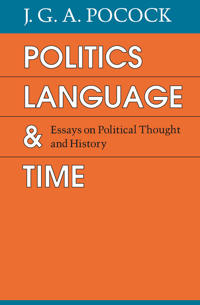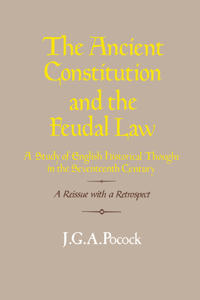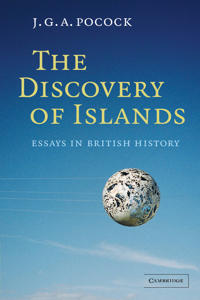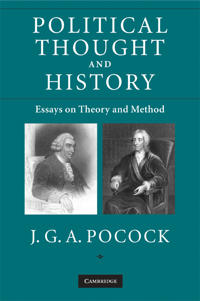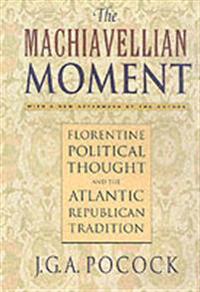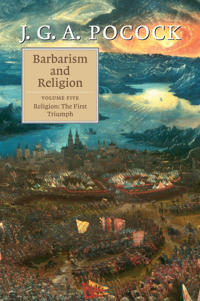Politics, Language and Time (Häftad)
avJ. G. A. Pocock
ISBN: 9780226671390 - UTGIVEN: 198901In his first essay, "Languages and Their Implications," J. G. A. Pocock announces the emergence of the history of political thought as a discipline apart from political philosophy. Traditionally, "history" of political thought has meant a chronological ordering of intellectual systems without attent[...]
The Ancient Constitution and the Feudal Law (Häftad)
avJ. G. A. Pocock
ISBN: 9780521316439 - UTGIVEN: 1987-04Professor Pocock?s subject is how the seventeenth century looked at its own past. In the sixteenth and seventeenth centuries, one of the most important modes of studying the past was the study of the law - the historical outlook which arose in each nation was in part the product of its law, and ther[...]
The Discovery of Islands (Häftad)
avJ. G. A. Pocock
ISBN: 9780521616454 - UTGIVEN: 200509The Discovery of Islands consists of a series of linked essays in British history, written by one of the world's leading historians of political thought and published over the past three decades. Its purpose is to present British history as that of several nations interacting with - and sometimes s[...]
Political Thought and History (Pocket)
avJ. G. A. Pocock
ISBN: 9780521714068 - UTGIVEN: 200902John Pocock is arguably the most original and imaginative historian of ideas of modern times. Over the past half century he has created an audience for his work which is truly global, and he has marked the way in which the history of political thought is studied as deeply and personally as any histo[...]
The Machiavellian Moment (Häftad)
avJ. G. A. Pocock
ISBN: 9780691114729 - UTGIVEN: 200301"The Machiavellian Moment" is a classic study of the consequences for modern historical and social consciousness of the ideal of the classical republic revived by Machiavelli and other thinkers of Renaissance Italy. J.G.A. Pocock suggests that Machiavelli's prime emphasis was on the moment in which [...]
Reflections on the Revolution in France (Pocket)
avEdmund Burke, J. G. A. Pocock, Edmund Burke
ISBN: 9780872200203 - UTGIVEN: 1987-09John Pocock's edition of Burke's Reflections is two classics in one: Burke's Reflections and Pocock's reflections on Burke and the eighteenth century.[...]
Barbarism and Religion: Volume 5, Religion: The First Triumph (Häftad)
avJ. G. A. Pocock
ISBN: 9781107667921 - UTGIVEN: 2015-06This fifth volume in John Pocock's acclaimed sequence on Barbarism and Religion turns to the controversy caused by Edward Gibbon's treatment of the early Christian church. Examining this controversy in unprecedented depth, Pocock challenges the assumption that Gibbon wrote with the intention of dest[...]

